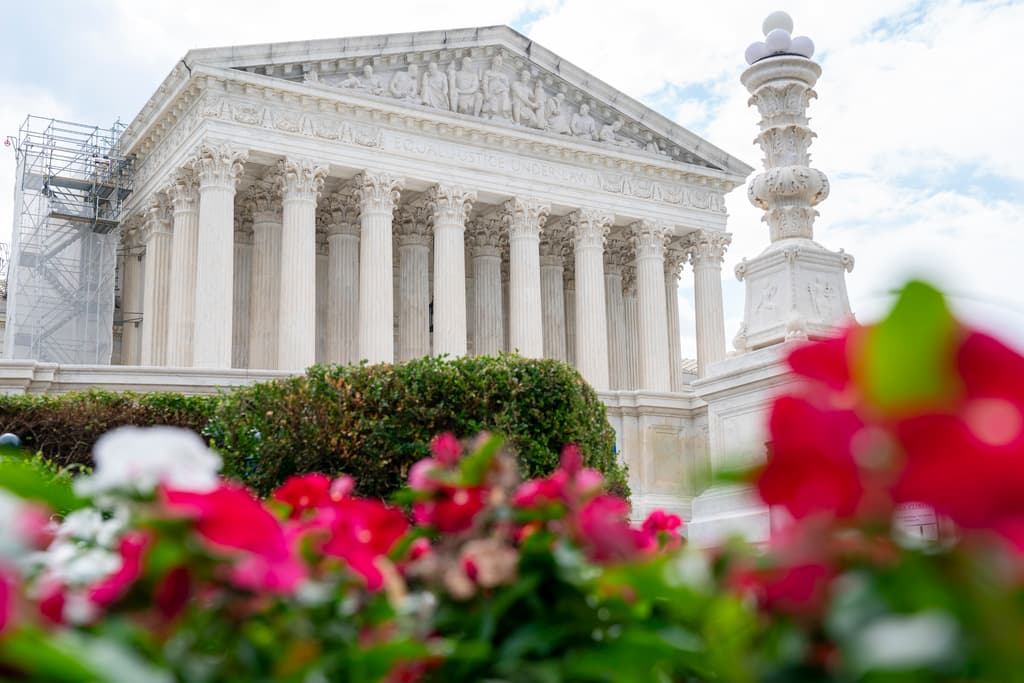Supreme Court To Hear Its First Major Abortion Rights Case Since Dobbs v. Jackson
The case could set a precedent for courts overturning long-standing decisions by the Food and Drug Administration.

In two weeks, the Supreme Court is set to review a ruling handed down by a federal appeals court that stands to place heavy restrictions on access to abortion pills in America, the first major abortion-rights-related case to go before the high court since Dobbs v. Jackson Women’s Health Organization.
The justices agreed to hear two cases together, Food and Drug Administration v. Alliance for Hippocratic Medicine and Danco Laboratories v. Alliance for Hippocratic Medicine, both of which concern access to the abortion medication mifepristone.
At stake is the future availability of mifepristone, one of the most common abortion drugs in America, one that has been prescribed more than 5 million times since it was approved in 2000.
The drug, though, is not only prescribed for abortions but also for the treatment of miscarriages. For both abortion and miscarriage treatment, it is normally paired with another drug, misoprostol, as part of a two-step treatment, according to the American College of Obstetricians and Gynecologists, which considers the drug both safe and effective.
The arguments, set for March 26, will come about a year after the issue began percolating through the court system. On April 7 of last year, a former anti-abortion activist, Judge Matthew Kacsmaryk, issued a ruling overturning the Food and Drug Administration’s 2000 approval of the drug.
On the same day, Judge Thomas Rice in Washington handed down a contrary ruling in a separate case stating that current FDA rules must remain in effect.
In August, the Fifth Circuit Court of Appeals ruled on an appeal from Judge Kacsmaryk’s court, overturning the judge’s ruling, which revoked the drug’s approval but also rolling back more recent FDA rules for the drug, such as one allowing mifepristone to be prescribed up to 10 weeks of pregnancy and via telemedicine.
The FDA and the manufacturer of mifepristone, Danco, then appealed the decision to the Supreme Court, with the court agreeing in December to hear the case. The court had also issued a temporary order in spring 2023 to keep mifepristone widely available while the legal process went forward.
In the case, the conservative group of doctors, the Alliance for Hippocratic Medicine, which defines life as “beginning at fertilization,” argues that emergency room doctors would suffer if mifepristone continues to be available as it is today.
“Throughout FDA’s regulation of mifepristone, including the 2021 actions allowing mail-order abortions, FDA has admitted that emergency room doctors will be crucial to addressing chemical abortion complications,” attorneys for the group write in a brief.
The group also contests that changes made by the FDA to mifepristone’s approval in 2016, allowing the drug to be used at up to 10 weeks of pregnancy and removing a previously mandatory 14-day follow-up visit, were not adequately explained by the FDA and that they could harm doctors who treat women who experience complications.
The Biden administration has in turn argued that the court’s revocation of the FDA approval would “mark the first time any court has restricted access to an FDA-approved drug based on disagreement with FDA’s expert judgment to assure that drug’s safe use.”
Attorneys for the federal government also note that the FDA had “maintained that scientific judgment across five presidential administrations while updating the drug’s approved conditions of use based on additional evidence and experience.”
Danco, which is joining the government in arguing for mifepristone to remain on the market, also argues that the case raises the prospect of whether a court has the authority to overturn agency rulings that it dislikes.
Danco’s attorneys have also questioned whether the Alliance for Hippocratic Medicine has the right to bring the case, given that no doctor represented by the alliance claims to have suffered any harm, and its case relies on a statistical argument in which it claims a doctor might suffer a future harm.
“Asserting a statistical possibility of injury is categorically insufficient to establish associational standing,” attorneys for Danco write. “An injury-in-fact must be ‘actual and imminent, not conjectural or hypothetical.’”

